Yes, it IS possible to support formula-feeding moms AND fight formula marketing. It’s important to distinguish the existence or use of formula from the way it’s marketed.
We support formula feeding moms because not all moms are physically able to breastfeed or make enough milk. Although the vast majority of moms are able to breastfeed successfully when given the right support, some moms may have no or low milk supply due to mastectomies, insufficient glandular tissue (IGT), breast reductions, polycystic ovarian syndrome or other reasons. A very few babies have a rare, inherited disease called galactosemia and cannot tolerate milk at all-these babies need a special formula to survive.
We support formula feeding moms because some moms take medication that is contraindicated with breastfeeding (though many, many medications are safe), or are HIV-positive (though in underdeveloped countries, the risk of not breastfeeding is higher than the risk of breastfeeding with HIV), or have been sexually abused (though counseling has helped some of these mothers successfully breastfeed and include breastfeeding in their healing journey).
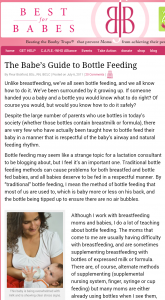 We support formula feeding moms because many, many moms who wanted to breastfeed exclusively are Booby Trapped®, and end up supplementing or switching to formula. Only 16% of mothers are breastfeeding exclusively at 6 months, so that means 84% used formula at some point or are still using formula.
We support formula feeding moms because many, many moms who wanted to breastfeed exclusively are Booby Trapped®, and end up supplementing or switching to formula. Only 16% of mothers are breastfeeding exclusively at 6 months, so that means 84% used formula at some point or are still using formula.
We support formula feeding moms because as much as we wish human milk or donor milk or milk-sharing was a viable option for every mom, that day has not yet come. (See the Miracle Milk™ Mother’s Day Stroll). We need to help more moms breastfeed successfully so there is a greater supply of available milk, especially for the premature, sick or compromised infants who need it most. As long as donor milk is not easily available and affordable for everyone, formula is the next best option for mothers who can not breastfeed, pump or make enough milk.
We support formula feeding moms because we support moms. We respect mothers’ decisions. We believe that all mothers want the best for their babies, and do the best they can given their circumstances at that time. Some mothers choose to feed formula exclusively. We support them, period. We believe that they deserve the best, unbiased information on choosing and using formula, best bottle-feeding techniques, and compassionate, evidence-based support groups. See our Guide to Bottle Feeding. We support formula feeding moms because WE, like most moms, have formula-fed!
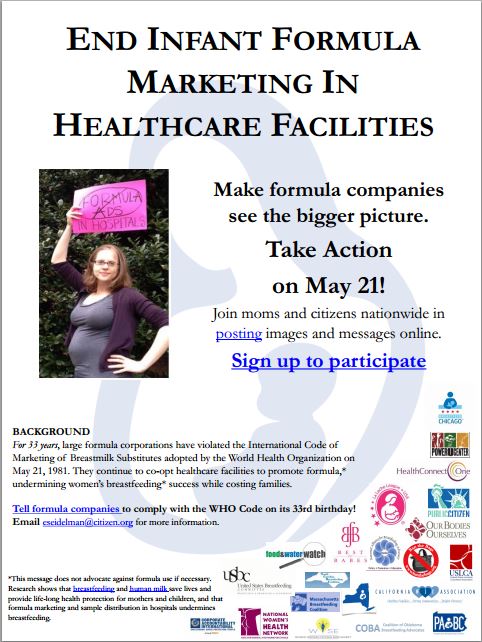 We fight formula marketing because the formula industry spends billions on marketing formula, a cost that gets passed directly on to the consumer who buys formula. Formula marketing makes formula expensive! Those freebies? Their cost is reflected in the can or bottle someone else buys. It may be free for you, but someone else is paying the price. If formula companies upheld the International Code, formula would be a lot more affordable for those who need it. Formula is like bread. It doesn’t need to be marketed; moms who need it already know where to find it.
We fight formula marketing because the formula industry spends billions on marketing formula, a cost that gets passed directly on to the consumer who buys formula. Formula marketing makes formula expensive! Those freebies? Their cost is reflected in the can or bottle someone else buys. It may be free for you, but someone else is paying the price. If formula companies upheld the International Code, formula would be a lot more affordable for those who need it. Formula is like bread. It doesn’t need to be marketed; moms who need it already know where to find it.
We fight formula marketing because it perpetuates myths and misinformation about breastfeeding, human milk AND formula feeding. It is in the formula companies’ interest to sell as much product as possible, to compare formula as favorably as possible to breastmilk (although there is no comparison) and to make formula feeding look as easy and carefree as possible even though correct preparation of powdered formula, the most affordable and commonly used version, is anything but carefree. Formula companies sponsor “infant feeding hotlines” and create “breastfeeding support” materials that omit or distort information.
We fight formula marketing because it undermines breastfeeding moms. Formula companies claim they market to compete with each other, but studies show that mothers who are targeted by formula marketing are less likely to breastfeed exclusively and quit sooner than mothers who are not targeted by formula marketing.
We fight formula marketing because formula companies are directly responsible for some of the biggest Booby Traps moms encounter, for example free gift bags and sponsored information about breastfeeding in hospitals and doctors’ offices. Formula companies providing healthcare professionals with gifts, incentives, free lunches, swank conferences and “training” them on how to supplement “when breastfeeding doesn’t work out” which means that formula companies are training health care professionals on how to supplement so that breastfeeding DOESN’T work out.
We fight formula marketing because it results in higher rates of formula feeding. If increased breastfeeding could save the U.S. billions in healthcare costs, then it stands to reason that increased formula feeding is costing the U.S. billions in healthcare costs. Remember, this is not about individual, anecdotal “I was fed formula and I turned out fine” but about vast numbers showing that in general, formula-feeding increases health risks for babies and mothers.
We fight formula marketing because it fuels the “Mommy Wars.” Booby Traps created by formula marketing (for example health care professionals that lack basic education on breastfeeding management and who push formula) are insidious and frequently invisible. There is a profound lack of awareness of how formula marketing creates Booby Traps! As a result, all of the intense emotions surrounding pregnancy and infant-feeding decisions snowball into an avalanche of defensiveness, guilt, shame, and anger that is unleashed at other moms, instead of at the Booby Traps. Mothers who use formula should not feel guilty or defensive-and they should NEVER be made to feel that way, they are doing the best they can! But formula companies should feel guilty and ashamed. If we want the “Mommy Wars” to end, we need to band together to fight the Booby Traps, not each other!
If you would like to support formula-feeding moms, AND fight formula marketing, please participate in the Day of Action by signing the Public Citizen Petition, changing your profile picture, posting pictures of yourself holding a sign on the Event Facebook page, and posting messages on formula company Facebook pages.



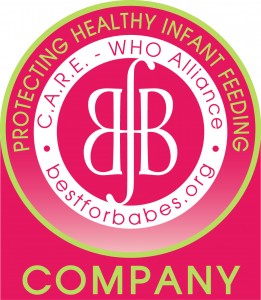
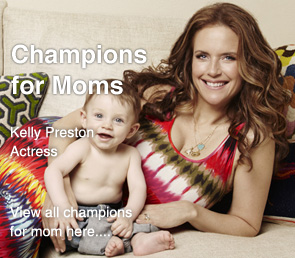
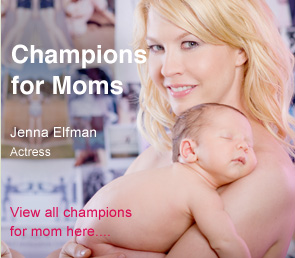
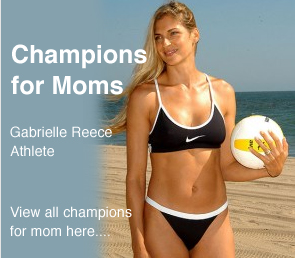
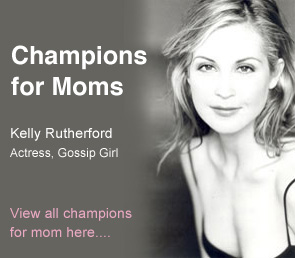
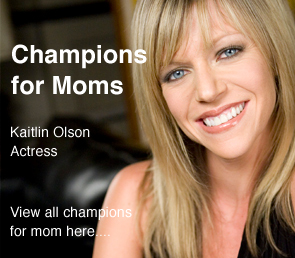
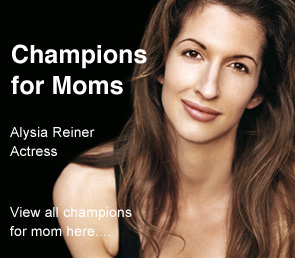
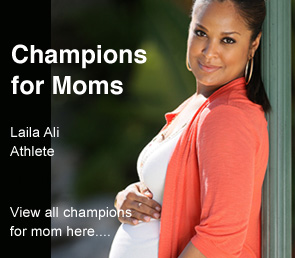
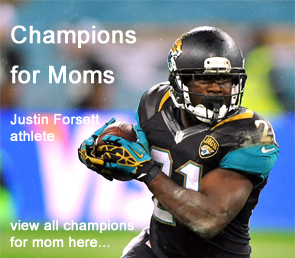
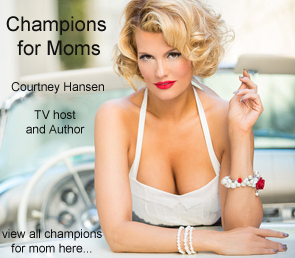
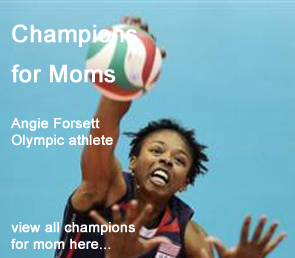
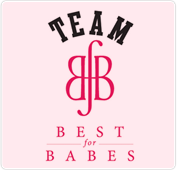

Pingback: Why Keep Infant Formula Marketing Out of Healthcare Facilities? : KellyMom
Very well said!!
I absolutely loved this post and how supportive it was of formula feeding mothers. This is so refreshing to me. As a nurse who has worked with many postpartum women who had trouble breastfeeding and was unable to exclusively breastfeed either of her children, the message is truly appreciated.
Another step that might be taken is to think about revising the “I don’t want to breastfeed” webpage.
http://www.bestforbabes.org/help-i-dont-want-to-breastfeed/
I feel that is is mostly written in order to encourage a mother to choose to breastfeed (or pump).
It’s hard for a woman to feel as though formula is an acceptable choice if she thinks that she is putting her baby at risk for diabetes, asthma, or eczema as stated on this webpage.
I really wouldn’t have a problem with this, but most recent research does not find that breastmilk protects against these chronic conditions (1).
The research on childhood cancers is mixed at best (2). For a mother, the thought of a child getting cancer is chilling to say the least. Fortunately , childhood cancers are very rare; The risks for a child getting ALL is about 1 in 10,000, and the incidence of AML is less than that. The percentage risk reduction is given is quite small (15-19%)—probably borderline for statistical significance.
When the chances that a mother cannot breastfeed exclusively is at best one in 20 (I think it’s probably about 1 in 10), and the research is not conclusive, is it really necessary to tell women who are unable or don’t want to breastfeed, that they might be responsible if their child gets cancer?
If those of you at Best for Babes are sincere (which I truly believe you are) about supporting all mothers regardless of how they feed their babies, please consider doing a thorough review of the research on the benefits and give the readers of your website accurate, evidence based information.
Thank you again for this great post. If you have more recent and/or stronger research that supports claims that breastmilk does in fact protect against diabetes, eczema, asthma or cancers, I will stand corrected and owe an apology.
Anne Risch RN
(1) Diabetes (the AAP cites a 2008 study, whose author collaborated on the first study below)
http://www.ncbi.nlm.nih.gov/pubmed/22837371 2012 Review of Studies
http://www.ncbi.nlm.nih.gov/pubmed/20852257 2010 Infant feeding patterns and cardiovascular risk factors…….(diabetes and obesity)
http://www.ncbi.nlm.nih.gov/pubmed/20507546 2010 Maternal and neonatal risk factors for childhood type one diabetes
http://www.ncbi.nlm.nih.gov/pubmed/19183310 2008 Childhood BMI, breastfeeding and type 1 diabetes
http://www.ncbi.nlm.nih.gov/pubmed/19263185 2009 Early infant feeding and type one Diabetes
Eczema
http://www.ncbi.nlm.nih.gov/pubmed/21883137 2014 Lack of evidence…
http://www.ncbi.nlm.nih.gov/pubmed/24342028 2013 Breastfeeding and risk of AD….
http://www.ncbi.nlm.nih.gov/pubmed/24313809 2013 Perinatal factors…..
http://www.ncbi.nlm.nih.gov/pubmed/23083457 2012 BF and atopic dermatitis/food allergies
http://www.ncbi.nlm.nih.gov/pubmed/22822349 2012 Prevention of eczema….
http://www.ncbi.nlm.nih.gov/pubmed/20649899 2010 What’s new in atopic eczema… http://www.ncbi.nlm.nih.gov/pubmed/20236698 2010 Increased risk of eczema …….
Asthma
http://www.ncbi.nlm.nih.gov/pubmed/22373843 2012 Determinants of Asthma
http://www.ncbi.nlm.nih.gov/pubmed/24298900 2014 Breastfeeding and wheeze…
http://www.ncbi.nlm.nih.gov/pubmed/21980940 2011 meta-analysis investigating breast feeding… http://www.ncbi.nlm.nih.gov/pubmed/18769191 2008 Breastfeeding and allergies (and asthma):
http://www.ncbi.nlm.nih.gov/pubmed/19164357 2009 Effect of breastfeeding on asthma… http://www.ncbi.nlm.nih.gov/pubmed/18839293 2009. Early infant feeding and illness… 2009…
http://www.ncbi.nlm.nih.gov/pubmed/18468669 2008 Prospective study of breastfeeding….
http://www.ncbi.nlm.nih.gov/pubmed/17855282 2007 Prolonged and exclusive breastfeeding on risk of allergy and asthma..
http://jama.jamanetwork.com/article.aspx?articleid=209119 2007 Breastfeeding is not protective ….
(2) Childhood Cancers
http://www.ncbi.nlm.nih.gov/pubmed/24083735 2013 Breastfeeding and lymphoma
http://www.ncbi.nlm.nih.gov/pubmed/16263987 2005 Review of case control studies related to breastfeeding…..
http://www.ncbi.nlm.nih.gov/pubmed/15986434 2005 Breast-feeding and childhood cancer: A systematic review with metaanalysis
http://www.ncbi.nlm.nih.gov/pubmed/16052219 2005 Kwan et al
http://www.ncbi.nlm.nih.gov/pubmed/15504444?dopt=Abstract Kwan 2004 cited by AAP—(Kwan 2005 is ignored)
I am not a researcher or scientist so I will leave the citations of literature to those more qualified than me to comment on the scientific evidence. However, I put forth the following for consideration: 1) scientific studies on breastfeeding are inherently flawed because for ethical reasons, it is impossible to conduct a double-blind (did I get that reference right?) study where babies are denied breastmilk as part of the study. So the scientific evidence in favor of breastfeeding is going to be limited from the get-go. 2) Scientific studies of breastfeeding are only beginning to scratch the surface of the amazing function of human milk. The only reason doubt is even being cast on human milk at all is because there is a profit to be made from it’s substitute. Nobody would think to question the importance of human blood because there is no good man-made substitute for it yet. 3) It goes against common sense and our survival instincts to dismiss the evolutionary and biological imperative of human milk. You are right that advocates should not strike fear into the hearts of mothers who can not or choose not to breastfeed, but that does not mean we should diminish the importance of human milk either. The solution is to remove the barriers to informed choice, breastfeeding and donor milk, not invalidate human milk or the breastfeeding experience.
Coming from a country outside the USA (I’m British, and live in London) the whole idea that formula is advertised and promoted in hospitals or clinics is just strange.
We are a long way from perfectly supporting breastfeeding in the UK, sadly, but it’s been illegal here for a very long time to advertise formula aimed at young babies at all, let alone via doctors or hospitals! It is illegal to advertise, promote or discount infant formula at all, in any circumstances or in any way. Obviously, the companies do their best to get round these bans by advertising toddler formula, or “follow-on” formula, and so forth, in very similar packaging compared to the infant formula.
Wow Anne Rische, I was stunned by your letter. You certainly cherry picked your data. As an RN I would hope your practice was guided by your country’s health authorities’s recommendations. Health authorities world wide emphasise the importance of breastfeeding. Many now also outline the risks associated with formula use. Mothers are entitled to information from authorities they can trust.
So, Kacey,
Can you cherry-pick an equally lengthy list of studies or meta-analyses (not publications or websites)done within the last 6-7 years that conclude that breastfeeding CAN help prevent diabetes, asthma or eczema?
If so, I would look forward to seeing it.
Anne